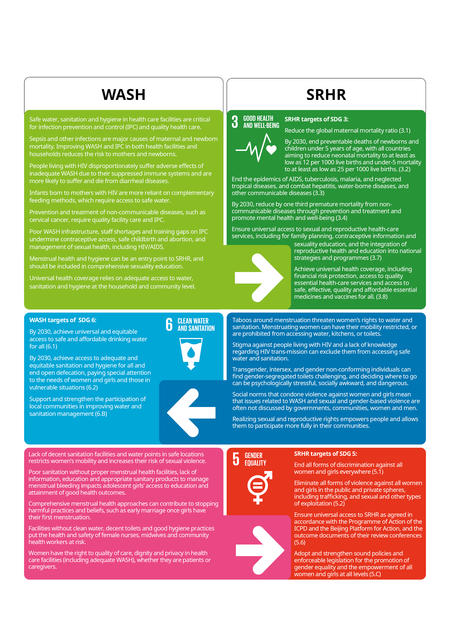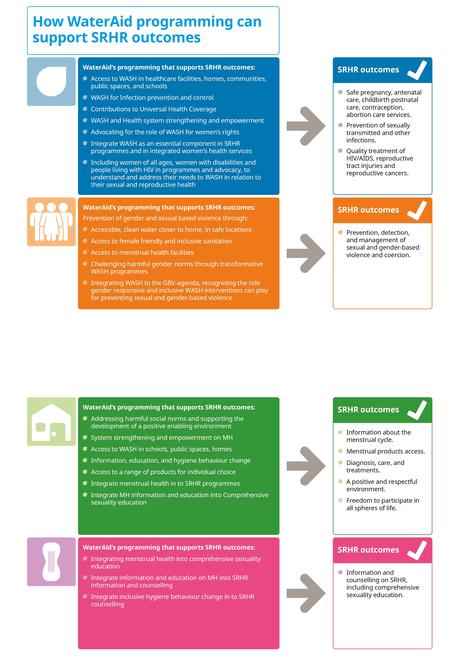The role of water, sanitation and hygiene in sexual and reproductive health rights
Download
- The role of WASH in sexual and reproductive health rights
- Le rôle de l'eau de l'assainissement et de l'hygiène dans la santé et les droits sexuels et reproductifs
- O papel da água do saneamento e da higiene na saúde sexual e reprodutiva e direitos conexo
- El papel del agua el saneamiento y la higiene en la salud y los derechos sexuales y reproductivos
- Links between WASH and sexual and reproductive health rights in achieving the sustainable development goals infographic
- How WaterAid can support sexual and reproductive health rights outcomes infographic

Read our guidance note to support your work on integration with the sexual and reproductive health and rights (SRHR) sector, fundraising, projects, advocacy and more.
Water, sanitation and hygiene (WASH) play a significant role in the quality of sexual and reproductive health (SRH) service delivery and the realisation of SRHR. Where WASH facilities are weak or absent from SRHR systems and services, people’s health is put at risk.
Integration of WASH and SRHR interventions can increase positive outcomes in health and women’s rights. Our guide provides technical guidance for improving WASH in the context of SRHR. While WASH services and partnerships should always be designed and adapted to local contexts and national standards, the aim of this guidance note is to provide practical support that:
- Is applicable across different countries, contexts and programmes
- Highlights crucial features specific to SRHR
- Underpins our programming
- Informs our proposals and advocacy
The guidance begins by framing the problem and how WASH is linked to SRHR, then maps our role within this area and concludes with programming guidance based on our programmatic approach.
Download the above infographic
Download the above infographic
Our work in sexual and reproductive health rights
We work with the SRHR sector to:
- Ensure SRH services have access to WASH
- Eliminate gender-based violence around WASH services
- Ensure everyone who menstruates can manage their periods safely and with dignity
- Challenge harmful gender norms through gender-transformative WASH programming
Learn more about the links between WASH and sexual and reproductive health and rights in sustainable development in our own paper A shared agenda, developed in partnership with International Planned Parenthood Federation, International Women’s Health Coalition, Marie Stopes International (now MSI Reproductive Choices) and Simavi.
Top image: Claudine Sailambo with other women and girls from Andavabaza village, Behara commune, Madagascar.





